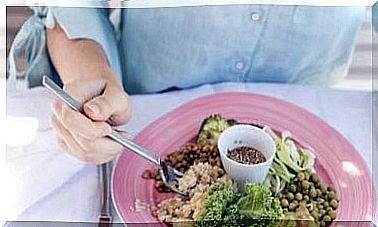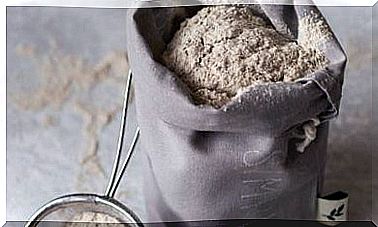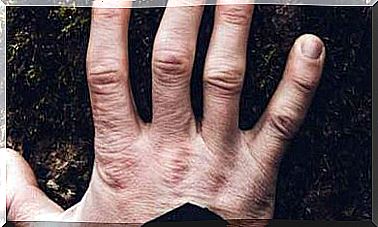10 Keys To Taking Care Of The Eyes Through Diet
Essential nutrients and antioxidants are concentrated in the eyes to see well. How to boost your reserves with diet to preserve vision?

The eyes are the most expressive part of the face and one of the body’s most sensitive organs to external factors. With them, the nervous system emerges to the outside. Not only the passage of the years can damage them; also habits. The important thing is to act on time.
On the one hand, you can protect your sight externally with eye exercises, daily rest and good hygiene. But these guidelines will be of little use if you do not provide your eyes with the nutrients they need through your diet.
Eye diseases such as macular degeneration and cataracts are not only due to age but also to an insufficient supply of nutrients and oxygen to the capillary system of the eyes. Good nutrition is therefore essential to keep your eyes in good condition over the years.
What nutrients do the eyes need?
- The most popular food for its positive effect on eye health is carrots. This is so thanks to its richness in beta-carotene, which the body transforms into vitamin A, essential to protect day and night vision. Sweet potato, pumpkin and other orange vegetables also provide beta-carotene.
- Another food well known for its positive effect is blueberries. Its anthocyanins, by promoting microcirculation, increase capillary resistance and decrease permeability. Therefore, consuming foods rich in anthocyanins such as blueberries or blackberries improves night vision, protects the retina and provides clearer and sharper vision.
- In addition, the eyes need lutein and zeaxanthin, two antioxidant pigments found in high concentrations in the retina.
- The DHA or docosahexaenoic acid, a fatty acid omega-3 family, it is essential to prevent processes degenerative eye and for the maturation of the central nervous system.
- Zinc, present in cereals, legumes, pumpkin seeds and meats, is the most abundant mineral in the eyes. It reinforces the action of vitamin A and favors the nutrition of the optic nerve.
- The corneal and sclera tissue of the eye is composed of collagen and mucopolysaccharides, responsible for offering consistency and resistance to the eyeball. Oats, tapioca, and kuzú (a starch) are good sources of mucopolysaccharides.
How does diet affect the eyes?
According to a study conducted by the National Eye Institute of the United States, consuming foods rich in antioxidants, essential fatty acids and minerals can benefit vision. In contrast, diets rich in sugars and refined flours, trans fats, and monosodium glutamate negatively affect it.
Why is taking vitamin A essential?
After the liver, the retina is the tissue that stores the most vitamin A, also known as retinol. Vitamin A deficiency can lead to problems such as dry eye syndrome, night blindness, conjunctival xerosis, Bitot’s spots and corneal xerosis with severe irreversible ulceration.
What is macular degeneration and what foods help prevent it?
The macula, located in the center of the retina, is the part of the eye that allows you to capture details and direct central vision. It is needed, for example, to read, drive or identify people. Its age-related degeneration is a degenerative eye disease and the leading cause of blindness in old age.
Carotenoids, especially lutein and zeaxanthin, are the most important nutrients in the macula and retina, and provide valuable protection to the eyes. They are found in vegetables and fruits, especially: red pepper, cabbage, corn, zucchini, pumpkin, spinach, carrots, mango, orange, black grape, papaya, melon and kiwi.
What are lutein and zeaxanthin?
They are carotenoid pigments and are found mainly in yellow or orange vegetables and fruits. Its antioxidant action not only protects against macular degeneration and cataracts but also helps filter harmful ultraviolet rays.
The risk of macular degeneration is reduced by 60-70% when high levels of yellow or orange vegetables and fruits are consumed.
What problems does a lack of vitamin B2 give?
This vitamin, present in the retina, allows the eyes to adjust to changes in light. Their deficit makes them photosensitive and can cause photophobia, keratopathies and optic neuropathy. It is found in whole grains and some vegetables.
What other vitamins protect eyesight?
High doses of vitamins C and E reduce the risk of cataracts.
- Vitamin C is abundant in the retina and is necessary for collagen in the sclera and corneum. It can be obtained from citrus fruits, peppers, and other vegetables.
- Vitamin E protects the ocular blood vessels. It is found in vegetable oils, nuts and whole grains.
Do omega-3 acids affect eyesight?
According to a recent study, diets rich in omega-3 fatty acids reduce the risk of age-related eye disorders. The incidence of glaucoma is low among Eskimos, probably due to the abundant consumption of oily fish, rich in omega-3s.
What foods harm the eyes?
Refined sugar lacks essential nutrients and forces the body to draw on its own reserves of vitamins and minerals. In addition, it alters blood sugar levels, which weakens the visual system, as in diabetes.
Other enemies of the eyes are refined cereals and flours and trans fats.
Is there a useful medicinal plant to see better?
The best known is ginkgo, which by stimulating blood flow and microcirculation is suitable for brain function and eyesight. In the latter, it produces notable improvements, especially in conditions related to vascular problems.
In glaucoma and diabetic retinopathy, acuity and visual field increase.









